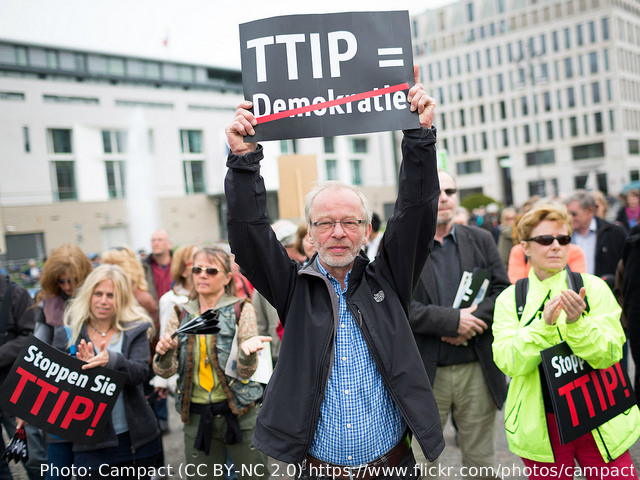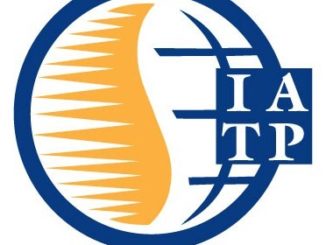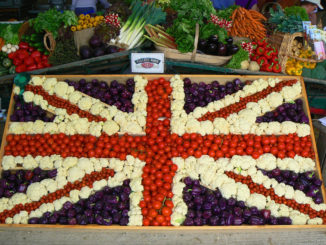With the 6th round of negotiations next week in Brussels, movements for local and regional food systems and public health advocates on both sides of the Atlantic have come together to express serious concerns about TTIP. Its almost exactly a year since the negotiations started in Washington and Civil society groups from the U.S. and EU are concerned about what TTIP will mean for food and farming in the EU and U.S.
 Although it is difficult, because of the complete lack of transparency around negotiations, to know exactly what will happen, big food and agriculture lobby gives an indication of what sort of demands our being made for a new trade deal and officials are actively seeking their input.
Although it is difficult, because of the complete lack of transparency around negotiations, to know exactly what will happen, big food and agriculture lobby gives an indication of what sort of demands our being made for a new trade deal and officials are actively seeking their input.
“We hear a lot about the need to agree on common standards, but why should that happen within the black box of a trade agreement?” asked the Institute for Agriculture and Trade Policy’s Karen Hansen-Kuhn. “The U.S. and EU have already agreed on an Organic Equivalency Arrangement and a bilateral agreement to protect wine names. The governments should bring civil society in on open discussions on the specific issues where we could reach common ground, outside of the confines of TTIP.”
ARC 2020 and IATP are working to mobilize movements on both sides of the Atlantic. This should not be a discussion about the EU versus the USA on food safety standards, but about what needs to be done to move towards sustainable food and farming that is good for the environment, public health and rural development. Both ARC and IATP are working on solutions based on principles of equity, global justice, building resilient local communities and agro-ecology. Beyond specific issues such as food safety, GMOs, hormone beef and chlorinated chickens, free trade agreements like TTIP are likely to move us towards even more intensive food production with all the risks associated with them.
“We must not let free trade agreements like TTIP move us towards even more intensive food production without thinking about how this will impact on the environment, public health, food safety, rural development and local communities. Civil society in both the EU and the U.S. is ready to raise the bar and instead of starting a race to the bottom,” said Robert Pederson, ARC2020.
More:
See full press release.
Along with ARC2020, the following organisations have sent a this joint press release on TTIP:
IATP (Institute for Agriculture and trade Policy)
CEO (Corporate Europe Observatory)
CIWF (Compassion in World Farming)
FoE (Friends of the Earth US)
CFS (Center for Food Safety)
See ARC2020’s TTIP briefing note (including all TTIP posts on Arc2020)





1 Trackback / Pingback
Comments are closed.